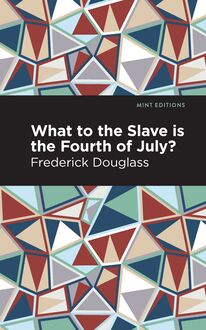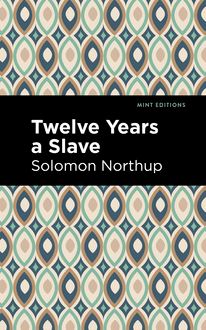-
 Univers
Univers
-
 Ebooks
Ebooks
-
 Livres audio
Livres audio
-
 Presse
Presse
-
 Podcasts
Podcasts
-
 BD
BD
-
 Documents
Documents
-
- Cours
- Révisions
- Ressources pédagogiques
- Sciences de l’éducation
- Manuels scolaires
- Langues
- Travaux de classe
- Annales de BEP
- Etudes supérieures
- Maternelle et primaire
- Fiches de lecture
- Orientation scolaire
- Méthodologie
- Corrigés de devoir
- Annales d’examens et concours
- Annales du bac
- Annales du brevet
- Rapports de stage
La lecture à portée de main
Vous pourrez modifier la taille du texte de cet ouvrage
Découvre YouScribe en t'inscrivant gratuitement
Je m'inscrisDécouvre YouScribe en t'inscrivant gratuitement
Je m'inscrisEn savoir plus
Vous pourrez modifier la taille du texte de cet ouvrage
En savoir plus

Description
The Sport of the Gods (1902) is a novel by African American author Paul Laurence Dunbar. Published while Dunbar was at the height of his career as one of the nation’s leading black writers, The Sport of the Gods examines the lives of poor African Americans who, despite being freed from slavery, struggle to establish themselves in the cities of the North.
Berry Hamilton, a black man freed from slavery following the American Civil War, has moved north with his wife and two children. In an unfamiliar city, he manages to find a job as a butler for the wealthy white Oakley family, and enjoys a short commute from a small cottage to his daily work at the Oakley residence. One day, during a dinner held on the eve of Francis Oakley’s departure, the family discovers that money has disappeared from the household safe. Accused of the crime, Maurice is found guilty and imprisoned for a decade of hard labor, leaving his wife Fannie and their boy and girl to fend for themselves. Evicted from their cottage, Fannie moves to New York, where Joe, her son, finds work and begins to frequent a local club. There, he enters a turbulent relationship with Hattie Sterling, an entertainer, which soon threatens to shake the family’s newfound stability.
With a beautifully designed cover and professionally typeset manuscript, this edition of Paul Laurence Dunbar’s The Sport of the Gods is a classic of African American literature reimagined for modern readers.
Sujets
Informations
| Publié par | Mint Editions |
| Date de parution | 26 janvier 2021 |
| Nombre de lectures | 0 |
| EAN13 | 9781513276885 |
| Langue | English |
| Poids de l'ouvrage | 1 Mo |
Informations légales : prix de location à la page 0,0350€. Cette information est donnée uniquement à titre indicatif conformément à la législation en vigueur.
Extrait
The Sport of the Gods
Paul Laurence Dunbar
The Sport of the Gods was first published in 1902.
This edition published by Mint Editions 2021.
ISBN 9781513271880 | E-ISBN 9781513276885
Published by Mint Editions®
minteditionbooks.com
Publishing Director: Jennifer Newens
Design & Production: Rachel Lopez Metzger
Project Manager: Micaela Clark
Typesetting: Westchester Publishing Services
C ONTENTS I. T HE H AMILTONS II. A F AREWELL D INNER III. T HE T HEFT IV. F ROM A C LEAR S KY V. T HE J USTICE OF M EN VI. O UTCASTS VII. I N N EW Y ORK VIII. A N E VENING O UT IX. H IS H EART ’ S D ESIRE X. A V ISITOR FROM H OME XI. B ROKEN H OPES XII. “A LL THE W ORLD ’ S A S TAGE ” XIII. T HE O AKLEYS XIV. F RANKENSTEIN XV. “D EAR , D AMNED , D ELIGHTFUL T OWN ” XVI. S KAGGS ’ S T HEORY XVII. A Y ELLOW J OURNAL XVIII. W HAT B ERRY F OUND
I
T HE H AMILTONS
F iction has said so much in regret of the old days when there were plantations and overseers and masters and slaves, that it was good to come upon such a household as Berry Hamilton’s, if for no other reason than that it afforded a relief from the monotony of tiresome iteration.
The little cottage in which he lived with his wife, Fannie, who was housekeeper to the Oakleys, and his son and daughter, Joe and Kit, sat back in the yard some hundred paces from the mansion of his employer. It was somewhat in the manner of the old cabin in the quarters, with which usage as well as tradition had made both master and servant familiar. But, unlike the cabin of the elder day, it was a neatly furnished, modern house, the home of a typical, good-living negro. For twenty years Berry Hamilton had been butler for Maurice Oakley. He was one of the many slaves who upon their accession to freedom had not left the South, but had wandered from place to place in their own beloved section, waiting, working, and struggling to rise with its rehabilitated fortunes.
The first faint signs of recovery were being seen when he came to Maurice Oakley as a servant. Through thick and thin he remained with him, and when the final upward tendency of his employer began his fortunes had increased in like manner. When, having married, Oakley bought the great house in which he now lived, he left the little servant’s cottage in the yard, for, as he said laughingly, “There is no telling when Berry will be following my example and be taking a wife unto himself.”
His joking prophecy came true very soon. Berry had long had a tenderness for Fannie, the housekeeper. As she retained her post under the new Mrs. Oakley, and as there was a cottage ready to his hand, it promised to be cheaper and more convenient all around to get married. Fannie was willing, and so the matter was settled.
Fannie had never regretted her choice, nor had Berry ever had cause to curse his utilitarian ideas. The stream of years had flowed pleasantly and peacefully with them. Their little sorrows had come, but their joys had been many.
As time went on, the little cottage grew in comfort. It was replenished with things handed down from “the house” from time to time and with others bought from the pair’s earnings.
Berry had time for his lodge, and Fannie time to spare for her own house and garden. Flowers bloomed in the little plot in front and behind it; vegetables and greens testified to the housewife’s industry.
Over the door of the little house a fine Virginia creeper bent and fell in graceful curves, and a cluster of insistent morning-glories clung in summer about its stalwart stock.
It was into this bower of peace and comfort that Joe and Kitty were born. They brought a new sunlight into the house and a new joy to the father’s and mother’s hearts. Their early lives were pleasant and carefully guarded. They got what schooling the town afforded, but both went to work early, Kitty helping her mother and Joe learning the trade of barber.
Kit was the delight of her mother’s life. She was a pretty, cheery little thing, and could sing like a lark. Joe too was of a cheerful disposition, but from scraping the chins of aristocrats came to imbibe some of their ideas, and rather too early in life bid fair to be a dandy. But his father encouraged him, for, said he, “It ’s de p’opah thing fu’ a man what waits on quality to have quality mannahs an’ to waih quality clothes.”
“’T ain’t no use to be a-humo’in’ dat boy too much, Be’y,” Fannie had replied, although she did fully as much “humo’in’” as her husband; “hit sho’ do mek’ him biggety, an’ a biggety po’ niggah is a ‘bomination befo’ de face of de Lawd; but I know ’t ain’t no use a-talkin’ to you, fu’ you plum boun’ up in dat Joe.”
Her own eyes would follow the boy lovingly and proudly even as she chided. She could not say very much, either, for Berry always had the reply that she was spoiling Kit out of all reason. The girl did have the prettiest clothes of any of her race in the town, and when she was to sing for the benefit of the A. M. E. church or for the benefit of her father’s society, the Tribe of Benjamin, there was nothing too good for her to wear. In this too they were aided and abetted by Mrs. Oakley, who also took a lively interest in the girl.
So the two doting parents had their chats and their jokes at each other’s expense and went bravely on, doing their duties and spoiling their children much as white fathers and mothers are wont to do.
What the less fortunate negroes of the community said of them and their offspring is really not worth while. Envy has a sharp tongue, and when has not the aristocrat been the target for the plebeian’s sneers?
Joe and Kit were respectively eighteen and sixteen at the time when the preparations for Maurice Oakley’s farewell dinner to his brother Francis were agitating the whole Hamilton household. All of them had a hand in the work: Joe had shaved the two men; Kit had helped Mrs. Oakley’s maid; the mother had fretted herself weak over the shortcomings of a cook that had been in the family nearly as long as herself, while Berry was stern and dignified in anticipation of the glorious figure he was to make in serving.
When all was ready, peace again settled upon the Hamiltons. Mrs. Hamilton, in the whitest of white aprons, prepared to be on hand to annoy the cook still more; Kit was ready to station herself where she could view the finery; Joe had condescended to promise to be home in time to eat some of the good things, and Berry—Berry was gorgeous in his evening suit with the white waistcoat, as he directed the nimble waiters hither and thither.
II
A F AREWELL D INNER
M aurice Oakley was not a man of sudden or violent enthusiasms. Conservatism was the quality that had been the foundation of his fortunes at a time when the disruption of the country had involved most of the men of his region in ruin.
Without giving any one ground to charge him with being lukewarm or renegade to his cause, he had yet so adroitly managed his affairs that when peace came he was able quickly to recover much of the ground lost during the war. With a rare genius for adapting himself to new conditions, he accepted the changed order of things with a passive resignation, but with a stern determination to make the most out of any good that might be in it.
It was a favourite remark of his that there must be some good in every system, and it was the duty of the citizen to find out that good and make it pay. He had done this. His house, his reputation, his satisfaction, were all evidences that he had succeeded.
A childless man, he bestowed upon his younger brother, Francis, the enthusiasm he would have given to a son. His wife shared with her husband this feeling for her brother-in-law, and with him played the role of parent, which had otherwise been denied her.
It was true that Francis Oakley was only a half-brother to Maurice, the son of a second and not too fortunate marriage, but there was no halving of the love which the elder man had given to him from childhood up.
At the first intimation that Francis had artistic ability, his brother had placed him under the best masters in America, and later, when the promise of his youth had begun to blossom, he sent him to Paris, although the expenditure just at that time demanded a sacrifice which might have been the ruin of Maurice’s own career. Francis’s promise had never come to entire fulfilment. He was always trembling on the verge of a great success without quite plunging into it. Despite the joy which his presence gave his brother and sister-in-law, most of his time was spent abroad, where he could find just the atmosphere that suited his delicate, artistic nature. After a visit of two months he was about returning to Paris for a stay of five years. At last he was going to apply himself steadily and try to be less the dilettante.
The company which Maurice Oakley brought together to say good-bye to his brother on this occasion was drawn from the best that this fine old Southern town afforded. There were colonels there at whose titles and the owners’ rights to them no one could laugh; there were brilliant women there who had queened it in Richmond, Baltimore, Louisville, and New Orleans, and every Southern capital under the old regime, and there were younger ones there of wit and beauty who were just beginning to hold their court. For Francis was a great favourite both with men and women. He was a handsome man, tall, slender, and graceful. He had the face and brow of a poet, a pallid face framed in a mass of dark hair. There was a touch of weakness in his mouth, but this was shaded and half hidden by a full mustache that made much forgivable to beauty-loving eyes.
It was generally conceded that Mrs. Oakley was a hostess whose guests had no awkward half-hour before dinner. No praise could be higher than this, and to-night she had no need to exert herself to maintain this reputation. Her brother-in-law was the life of the assembly; he had wit and daring, and about him there was just
-
 Univers
Univers
-
 Ebooks
Ebooks
-
 Livres audio
Livres audio
-
 Presse
Presse
-
 Podcasts
Podcasts
-
 BD
BD
-
 Documents
Documents
-
Jeunesse
-
Littérature
-
Ressources professionnelles
-
Santé et bien-être
-
Savoirs
-
Education
-
Loisirs et hobbies
-
Art, musique et cinéma
-
Actualité et débat de société
-
Jeunesse
-
Littérature
-
Ressources professionnelles
-
Santé et bien-être
-
Savoirs
-
Education
-
Loisirs et hobbies
-
Art, musique et cinéma
-
Actualité et débat de société
-
Actualités
-
Lifestyle
-
Presse jeunesse
-
Presse professionnelle
-
Pratique
-
Presse sportive
-
Presse internationale
-
Culture & Médias
-
Action et Aventures
-
Science-fiction et Fantasy
-
Société
-
Jeunesse
-
Littérature
-
Ressources professionnelles
-
Santé et bien-être
-
Savoirs
-
Education
-
Loisirs et hobbies
-
Art, musique et cinéma
-
Actualité et débat de société
- Cours
- Révisions
- Ressources pédagogiques
- Sciences de l’éducation
- Manuels scolaires
- Langues
- Travaux de classe
- Annales de BEP
- Etudes supérieures
- Maternelle et primaire
- Fiches de lecture
- Orientation scolaire
- Méthodologie
- Corrigés de devoir
- Annales d’examens et concours
- Annales du bac
- Annales du brevet
- Rapports de stage




















